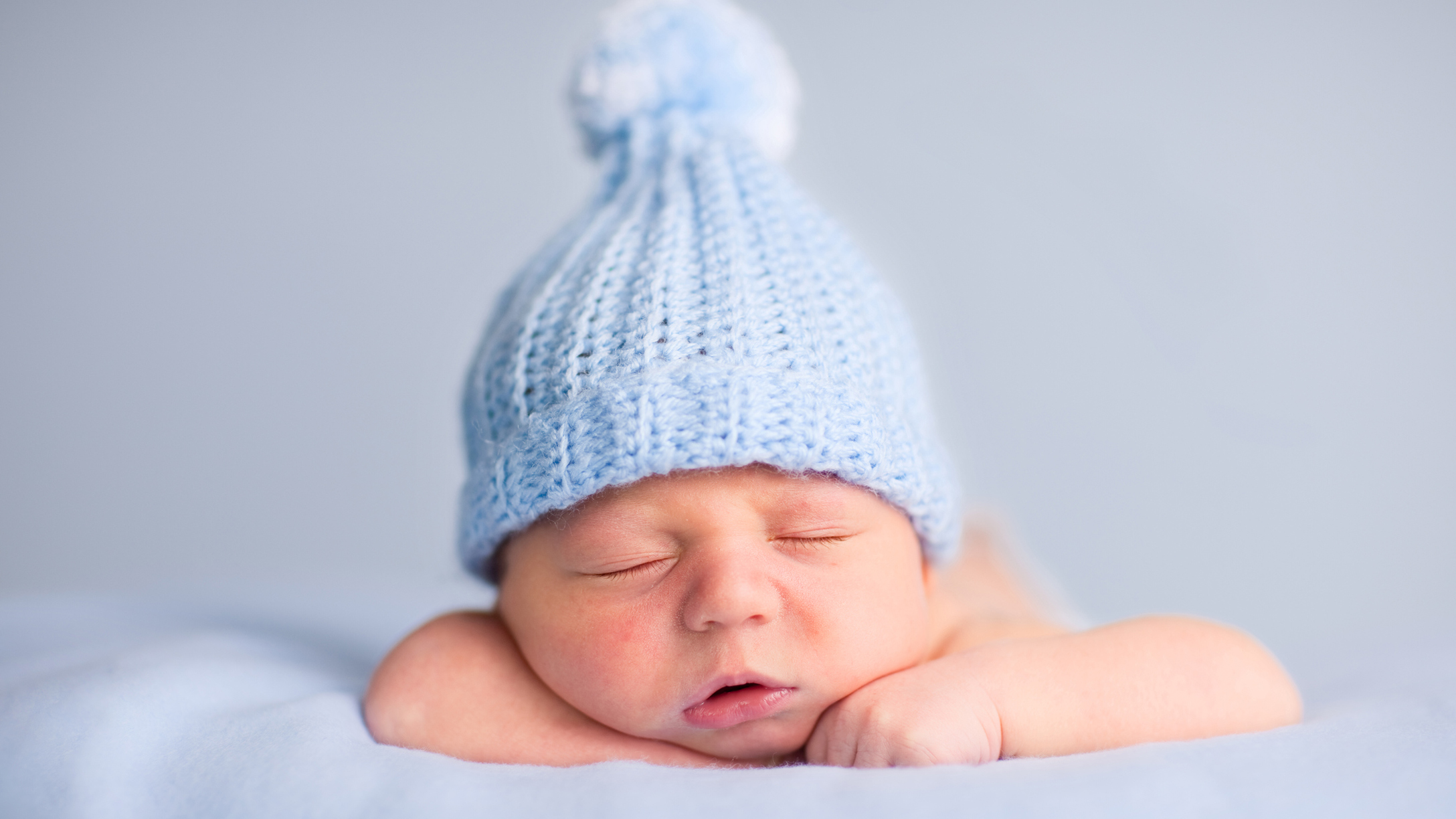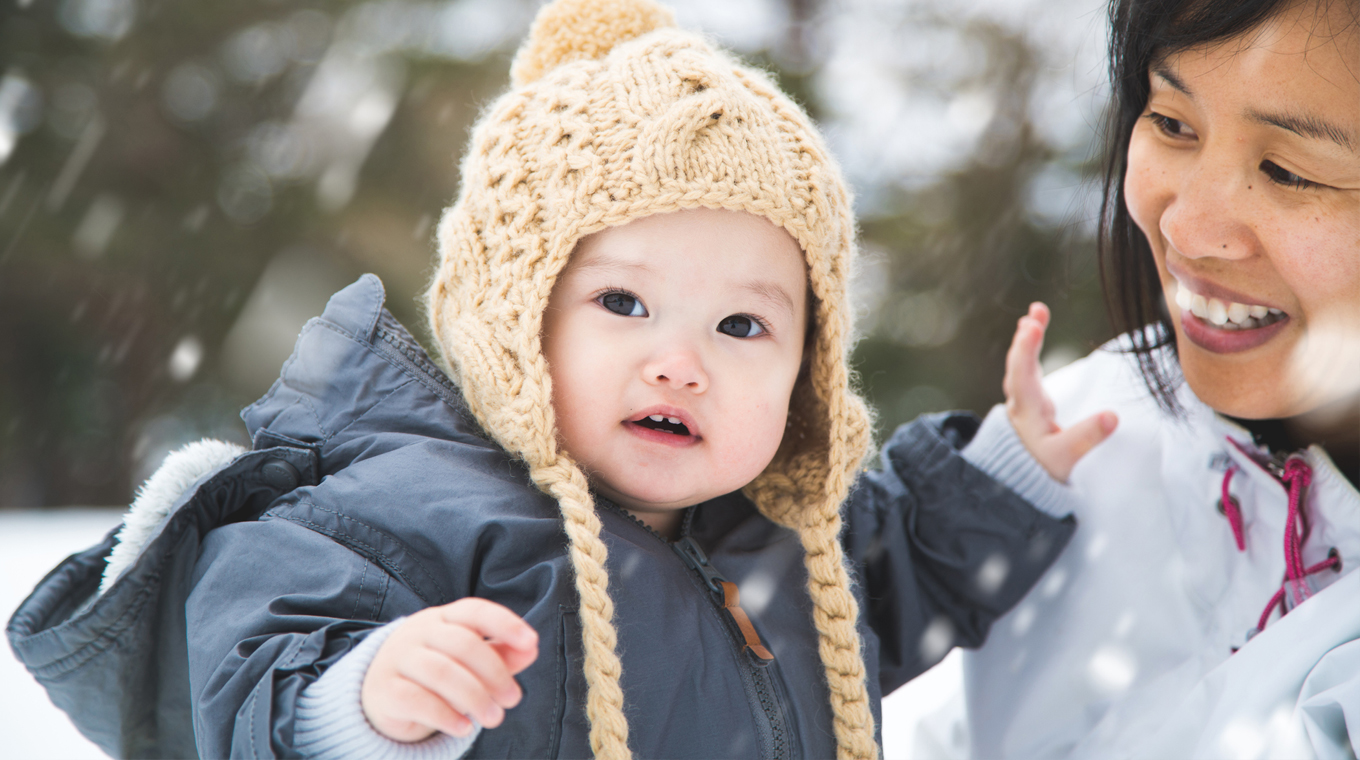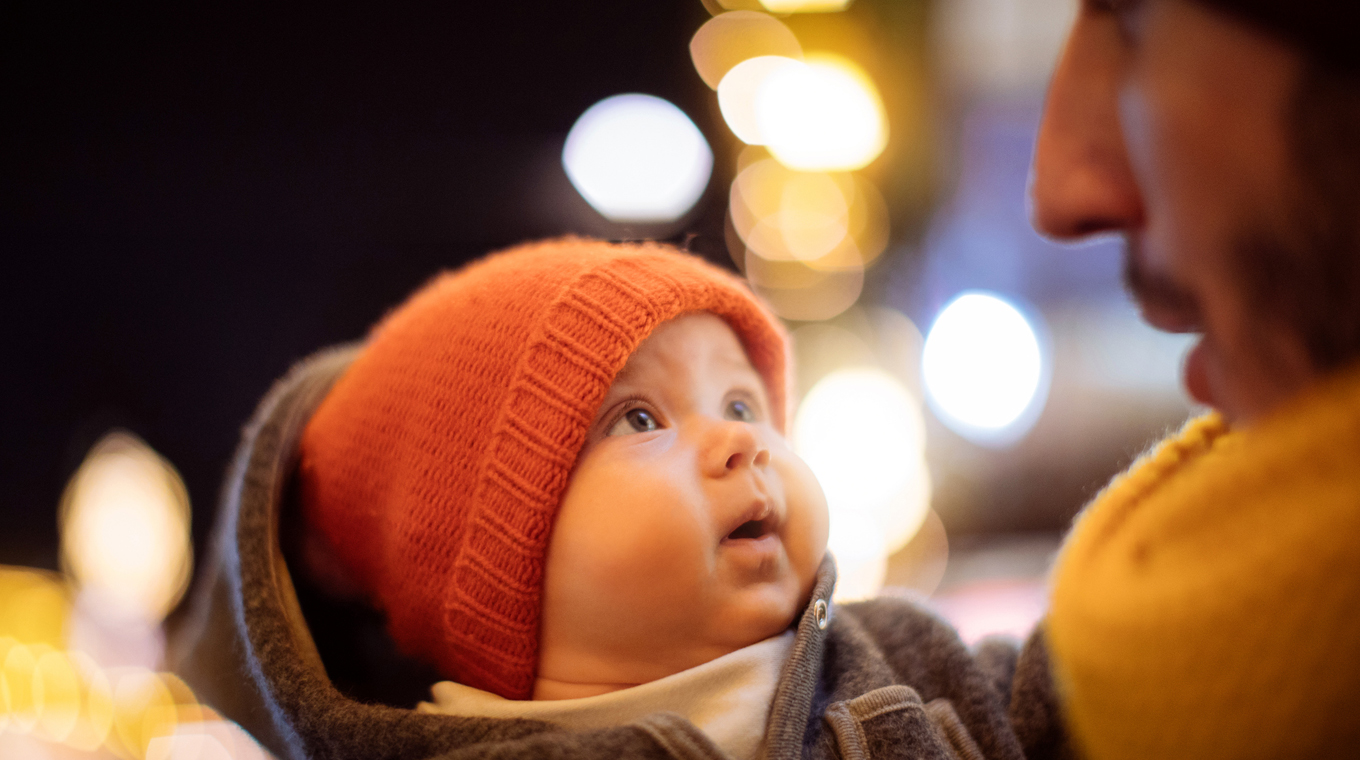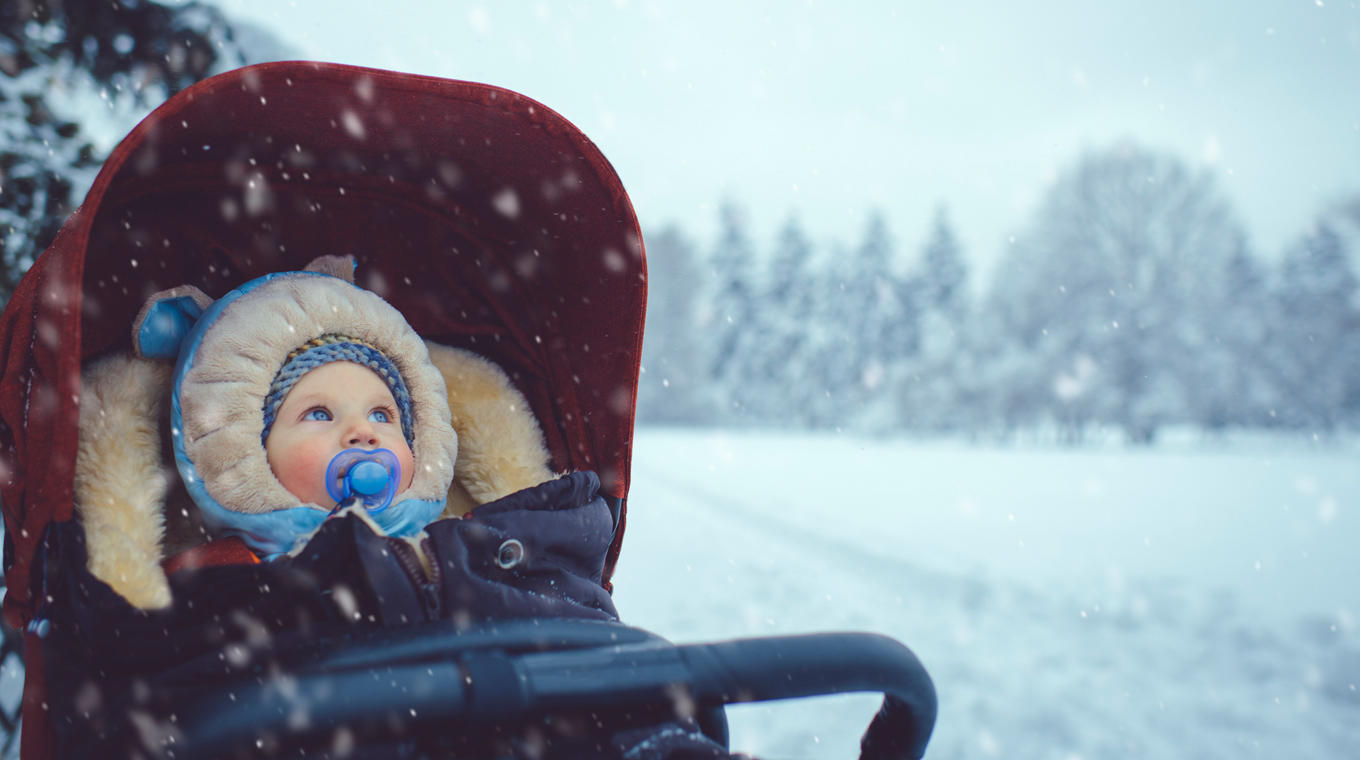
In this article
Winter’s here, so if you’re a new mom or expecting a baby soon, you’re probably trying to figure out how to survive your first winter with a baby. Changing seasons mean changing routines and changing the way you care for baby. It’s about more than just what the baby is wearing when the temperature changes, it’s about preparing baby for winter and all the winter essentials for baby that you probably never even thought about.
Preparing your baby for winter

When the temperatures changes and the snow starts to fall, it’s time to get out the cold weather clothing, dry skin lotions, and even change the way you, yourself, move through the world. Preparing baby for winter takes a lot of planning. Did you ever think that a new baby during winter would mean making sure that your car is properly winterized and you have winter boots with good tread? A baby really does change everything.
Winter essentials to protect newborns in cold weather

iStock
Layers for warmth
Start with a well-fitted onesie and build from there. Layer for warmth, not bulk. You want your baby to be comfortable — not too hot or buried under heavy clothing. “A good guide is to dress them at a comfort level that you would dress yourself for the same situation/weather,” Maureen Favorite, doula and mom of four, told Mom.com. “Nothing too restrictive, but not loose enough to entangle them if they’re wigglers!” Layer safely to avoid smothering.
Keep warm for the car ride
Start with a snug-fitting fleece jumper. Buckle your baby in and then layer blankets on top. “I think keeping a onesie at the core of the ensemble and layering out is best,” veteran mom Angie Rumpf told Mom.com. Forget about snow suits and bulky clothes — too much bulk means the harness is not fitting tightly enough to keep baby safe.
Bundle up for a walk around town
Not enough layers and your baby will be cold. Too many layers and he’ll overheat and be grumpy. Start with a well-fitted, long-sleeved onesie, pants, and socks. Add a zip-up sweater and a coat or snowsuit. Make sure to keep ears, feet, and hands safe from frostbite. Make sure to cover baby’s head with a hat and cover baby’s stroller with a bunting bag. Safety tip: Don’t use mittens with strings because they’re a strangling hazard.
Baby-wearing for warmth
Make sure your baby is not smothered between your chest, his chin, and a bunch of layers. Do not wear the baby chin to chest during the winter months, keep their airway clear, their head uncovered, and make sure that you can keep an eye on them at all times. Make sure that baby’s hands and feet are warm enough by checking often.
Tips for keeping baby safe during winter

iStock
There’s more to winter essentials for baby than just what they wear, you’ve got to keep baby’s safety at the front of your mind on all occasions.
Winter-proof your baby’s stroller
A good rule of thumb is that if the temp is below 60 degrees, you should put a weather shield on baby’s stroller.
Freezing temps and winter travel
When it’s below zero, avoid walking outdoors. Cold and slippery sidewalks can be dangerous for you and baby. That goes double for icy roads. If you can, stay home.
Be careful when using space heaters
Keep the inside temperature comfortable. If you must use a space heater to get the room toasty for baby, make sure it meets all current safety standards and never put the heater next to a curtain or carpet to avoid a fire.
Prevent dry skin
Limit bath time. During the winter time, air is drier and skin gets dried out. Limit baths to twice a week, and apply lotion after bathing and every day between baths. A thicker lotion is better during winter months to keep moisture in.
Dr. Sears recommends this post-bath routine. “Our family uses what I call the ‘soak and seal’ method,” Sears wrote on AskDrSears.com. “After giving your child a bath, gently blot the skin with a towel, then leave a bit of water layer to soak into the skin. Then apply an ointment-style moisturizer, such as Aquaphor Healing Ointment, on the skin to seal in the moisture.”
Keep baby healthy and germ-free
Cold weather means immune systems are compromised. This means it’s easier for babies to catch viruses. To minimize risks of baby getting sick, adults should up their hygiene. When coming home from being out in public, always wash your hands. Personally, I change my clothes when coming in from being out in general population. Make sure that you are across-the-board vigilant with guests who will be handling the baby too. Let them know, it’s not personal, it’s your baby’s health. They’ll understand.




